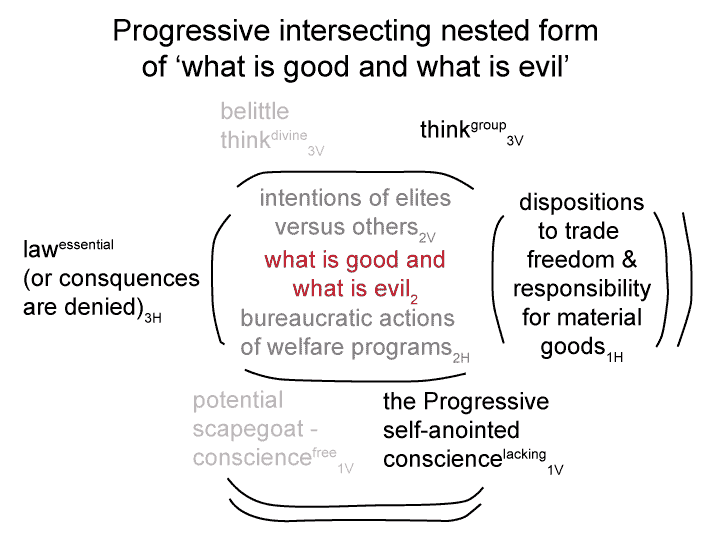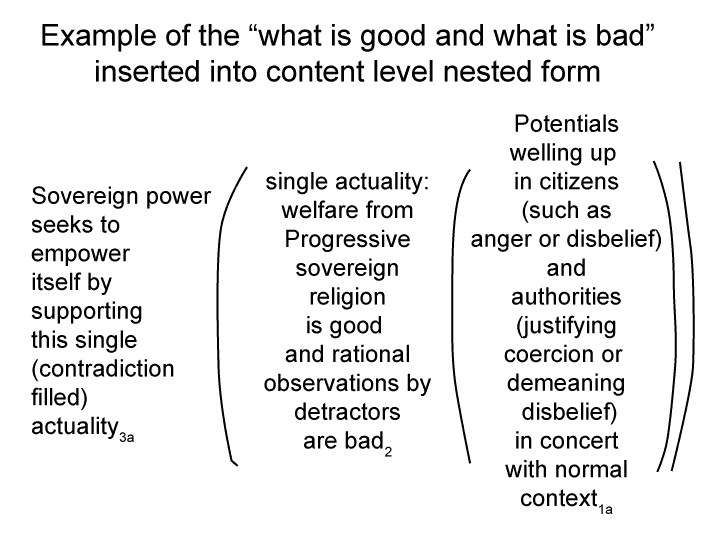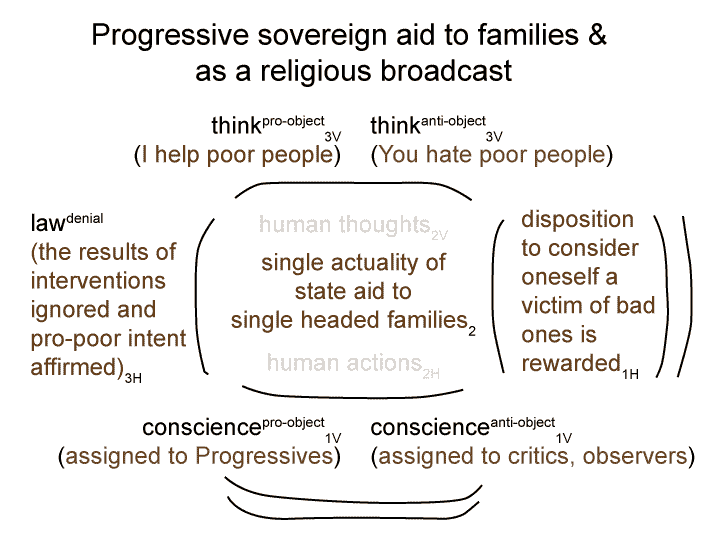Man and Sin by Piet Schoonenberg (1964) 2.2 CS-4
[This is a model, telling how a limiting and coercive normal context may sustain a contradiction-filled intersection in order to benefit from the conflict. The detractors are blamed for ‘the failure of the sovereign religion’s thoughts and actions’.
However, once the detractors (thinkdivine and consciencefree) are intimidated into silence, and the projection of thinkanti-object and conscienceanti-object onto innocents is obvious to all, then the inherent contradictions between the self-dealing moral system and its idolatrous actions become more and more undeniable.]



